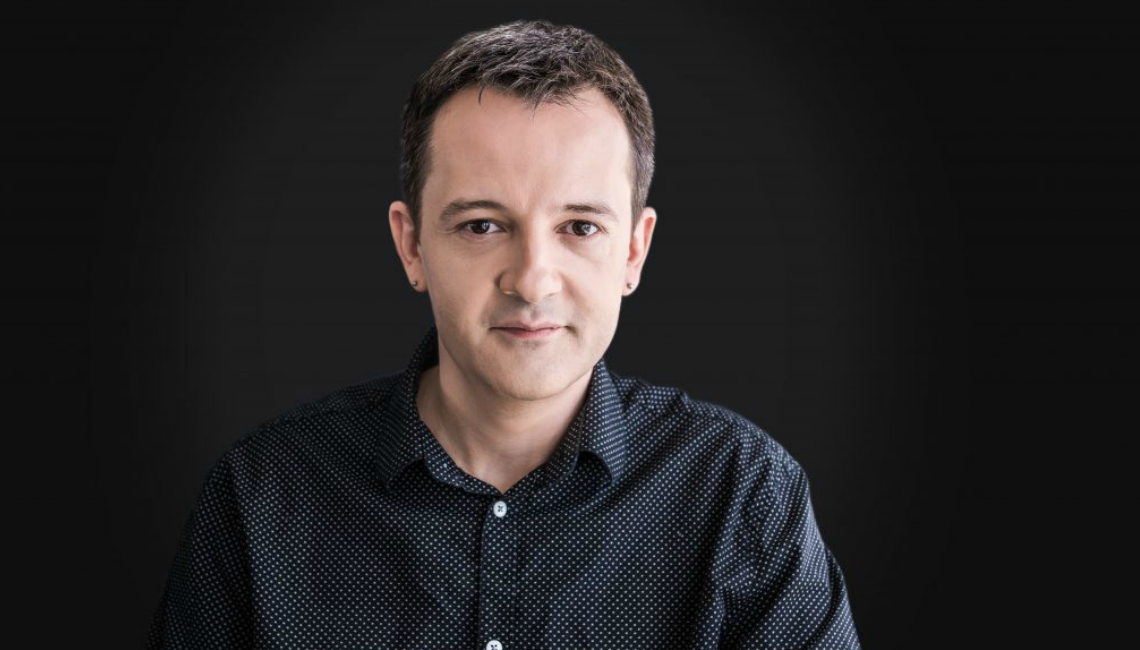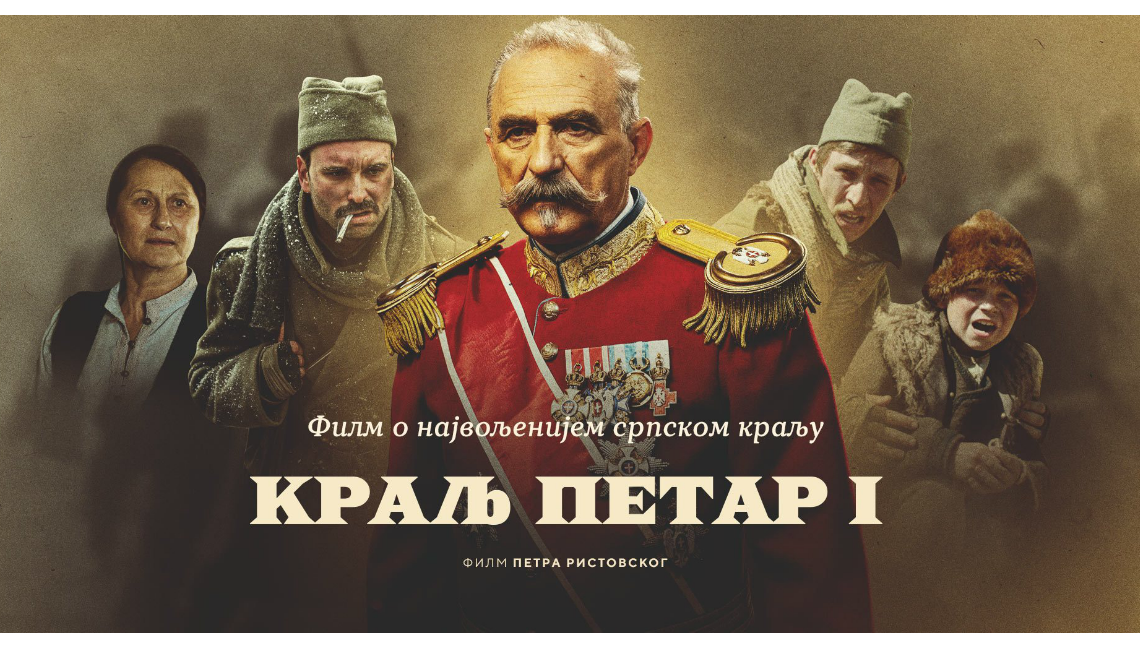We talked with Vladimir Ćosić, Digital Creative Director at McCann Beograd, about the work he invested in writing the scenario for the domestic historical drama "King Peter the First".

A few days ago, the premiere of the domestic historical drama "Kralj Petar Prvi" was held, a film that talks about the most loved Serbian king, the ordinary soldiers and the torment of the Serbian people during World War I. The film was directed by Petar Ristovski. Our colleague Vladimir Ćosić, the Digital Creative Director at McCann Beograd, is the main screenwriter, along with Milovan Vitezović, whose novel is the main idea, and Petar Ristovski.
The film depicts the Battle at Cer and Kolubara and the way through Albania, which are symbols of the war sufferings, sacrifices and heroism of our army and people. The role of Petar Karađorđević the Firts is played by Lazar Ristovski, and beside him are Radovan Vujović, Milan Kolak, Aleksandar Vučković, boy Ivan Vujić, Danica Ristovski and others.
Vladimir Ćosić graduated from the Faculty of Dramatic Arts in Belgrade. He deals with dramaturgy of long and short forms, copywriting, writes comics, drama and criticism. He collaborated with some of our most famous directors and scriptwriters, and since 2003 he started his career in advertising. As a digital creative director, he is responsible for the digital and innovative creative products of the agency, which have contributed to a large number of local and international awards, among which is the first Cannes Lion in Serbia. We talked to him about his work on the film, about the impressions from the shoot, his inspiration and many other topics.

Is "Kralj Petar Prvi (King Peter the First)" the first feature film on which you worked? Where did you draw inspiration? Which filmmakers and genre references do you appreciate?
In fact, this movie is not the first film I've been working on as a screenwriter. I worked on a large number of scenarios that weren’t realized, and one that was partly realized in my script - "Made in Yugoslavia" from 2005, where I was signed as a co-writer, directed by Mika Lazić.
I’ve drawn inspiration from various parts of the world - of course, from the history I studied, I can now say for years, from war, historical and biographical films that I’ve loved throughout my life, but ultimately, most importantly, from my own experience and subconsciousness in which all my characters live.
I'm afraid the list of authors, writers and films that I look up to would be too long for this interview. Let's say that some of the references I talked about with the director were war films like "The Big Red One" by Samuel Fuller, "Dunkirk" by Christopher Nolan, many of the westerns we both love... Also, it was unavoidable to compare it with "Saving Private Ryan "by Steven Spielberg, simply because of the similarity of the topic. What I was surprised with at the premiere was a certain visual similarity to the film Lord of the Rings, probably due to the excellent mountainous locations where the film, among others, was filmed, which look epic.
Are the events in the film in accordance to those which are part of the history? What is your personal view of this historical moment?
In a feature film, events can never be shown entirely "faithfully", due to the dramatic structure that the film requires, the movie time that is thickened by nature, as well as the author's view of things, characters, and events from another time. Even in documentaries, which pretend to be factually representing certain events, the author's stamp, his attitude, and the choice of events "defect" its credibility. In fact, every artistic view of reality is absolutely subjective. I would still hold those definitions that "the film is more real than reality", as it sees in the depth and essence of things, moments, relationships, and characters.
However, many dialogues, events and characters are based on saved documents, letters, photos, footage and events that really happened.
The concrete moment in the Serbian history of the film is one of the most important in our history; it is a time of almost incredible starvation, tragedy and suffering and epic heroism and sacrifice for the homeland. This moment has decisively influenced our lives today - we can only think about how our country would look today if at that time a third of the total population didn’t lose its lives, if the people who led the country made different decisions, if the longing for freedom was not the main driver of all the things that were done literally by all - from kings to peasants.
I tried to put myself in the shoes of my heroes, to imagine what kind of decisions I would make if I had led a small, weakened country into the greatest slaughter it had seen until then, or if I had to pass through all of it as an illiterate peasant.
In depth, for me, every war is fundamentally wrong, and no idea or ideology, even if it was the cleanest in the world, is not worth of human life. Of course, many of my characters disagree with me, they have their opinions, attitudes and their "life".
How difficult was it to juggle the creative director's job in the advertising agency and working on the film scenario?
It was extremely demanding, because both jobs require a dedication of 110%. I think my secret was in cloning. J
Jokes aside, I think that the only recipe for the venture of this kind (regardless of whether there is another job in parallel) is the absolute commitment and focus at a given moment, which can only be made possible by the unconditional love that I cultivate towards both (although related) professions.
To paraphrase one of my favorite heroes, Života, "Do not ask me" how I combined these two jobs with parenting, which is my biggest life challenge right now, "because I do not know."
How much do advertising and film industry differ? Does the context and working conditions and potential for expression of talent and taste and experimentation with forms differ significantly? What is it that should never be sacrificed in film and advertising (in creative industries)?
These two industries do not differ as much as people would think at first, or how many unrealized film or advertising authors would like to point out in their excuses. Essentially, motivation both for one and the other is the same - the desire of the author to change the world and the reality that surrounds him - only the means differ somewhat. The film, by its formal structure, is "bigger", involves more associates, higher budgets, greater and longer-lasting commitment to one project, hence the conditionally stated trim and less fiction. On the other hand, in the advertising industry, authors are rarely those who have the last word - it is reserved for the clients for which the campaign is being done. But at the end of the day, from my perspective, in both professions everything is reduced to a few people who succeed or fail to tell a particular story that represents their view of the world.
With this in mind, I think a creative person must never, whatever he/she does, (permanently) sacrifice his/her own artistic integrity. I emphasize, lastingly, because in this business and in all other professions, just as in life, we learns from our own mistakes.